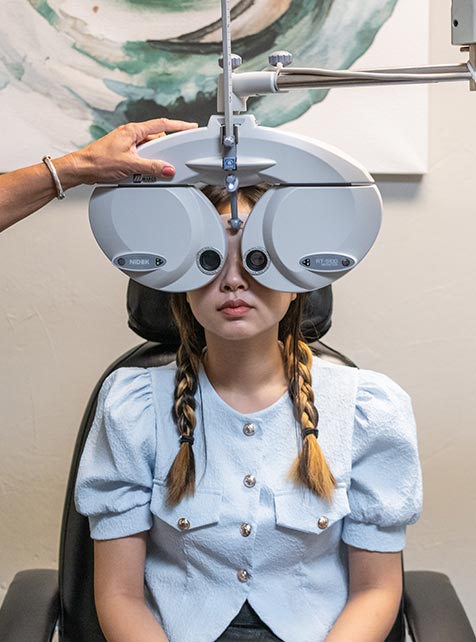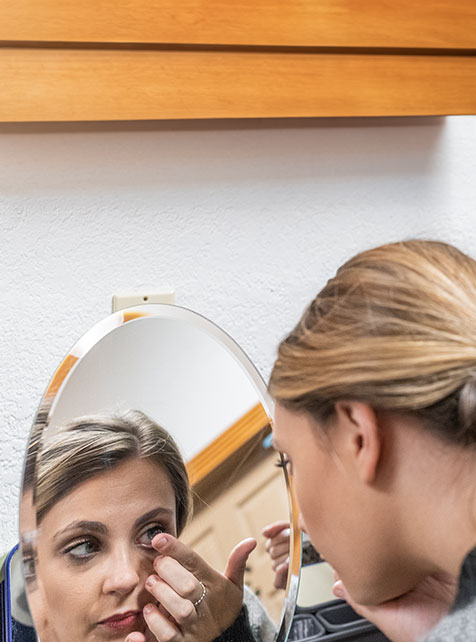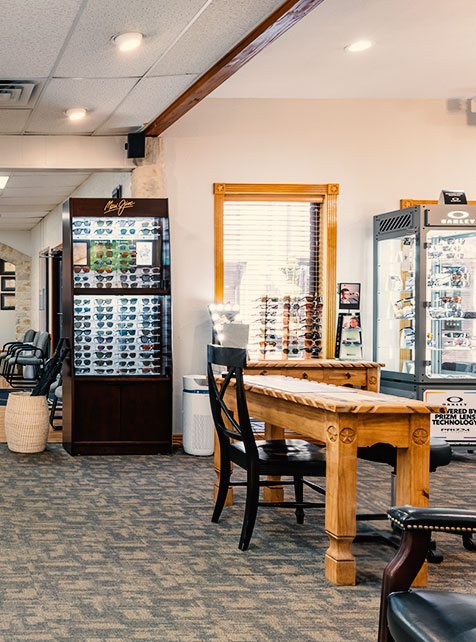
We have moved from the 10th February
The Stratum, 11044 Research Blvd Building C, STE 100, Austin, TX 78759, United States
Eye Exams & Eye Care, Austin at McCormick Vision Source
We at McCormick Vision Source are committed to promoting the health of your family's eyes. Our goal is to offer high-quality eye care services that prioritize your visual comfort and well-being. Our team of experienced eye doctors provides a comprehensive range of services to fulfill all your eye care needs.
Contact Lenses: See Clearly with Comfort At Austin
Our contact lens experts understand that vision correction should never compromise comfort. We offer a range of contact lenses designed for optimal comfort and clarity. Experience the freedom of crisp vision without the hassle of glasses.
Drop-Ins Always Welcome!
Find Your Signature Look
Glasses are more than just a vision correction tool — they're a fashion statement. Explore our stylish eyewear and find the frames that reflect your personality and style. Our experts will help you discover your signature look while ensuring the perfect fit.
Designer Frames Choices
Our Expert Eye Doctors — Leaders in Eye Care
At McCormick Vision Source, our expert eye doctors are at the forefront of the field. With their extensive knowledge and experience, our team provides you and your family with the best possible eye care. From prescribing accurate prescriptions to offering valuable advice, our doctors are your partners in maintaining excellent eye health.
WE ARE LIKE FAMILY
Our eye doctors genuinely care for patients and listen to their concerns. Our staff provides a cheerful welcome and the knowledge to help answer any other questions you may have.
SERVING YOU SINCE 1989
Our Eye Care Services

Regular eye exams in Austin, TX are crucial for maintaining optimal vision and identifying potential issues early on. Our comprehensive eye exams include an assessment of your eye health and visual acuity. Trust our skilled professionals to safeguard your vision for years to come.

Are you experiencing discomfort, irritation, or a gritty sensation in your eyes? Our experienced optometrists in Austin, TX are experts in dry eye treatment. We'll work with you to identify the underlying causes and develop a personalized treatment plan to bring you relief and improved eye comfort.

Experience clear vision without compromising your style. Our diverse range of contact lenses in Austin caters to various prescriptions and preferences. Whether you're new to contacts or seeking an upgrade, our team will assist you in finding the perfect fit for your lifestyle.

Are you experiencing eyestrain and discomfort due to excessive screen time or close-up tasks? Look no further than Neurolenses, a groundbreaking solution help alleviate visual irritation by providing the right prescription for both near and far vision.
Explore Reviews: Experience Excellence
Don't just take our word for it. Our satisfied patients have shared their experiences with McCormick Vision Source. We take pride in the positive feedback we receive, as it reflects our commitment to exceptional patient care and outstanding results.
Latest News from McCormick Vision Source
McCormick Vision Source is a bustling, vibrant practice. Stay up to date with our news section (and of course, be sure to follow us on social media)!











